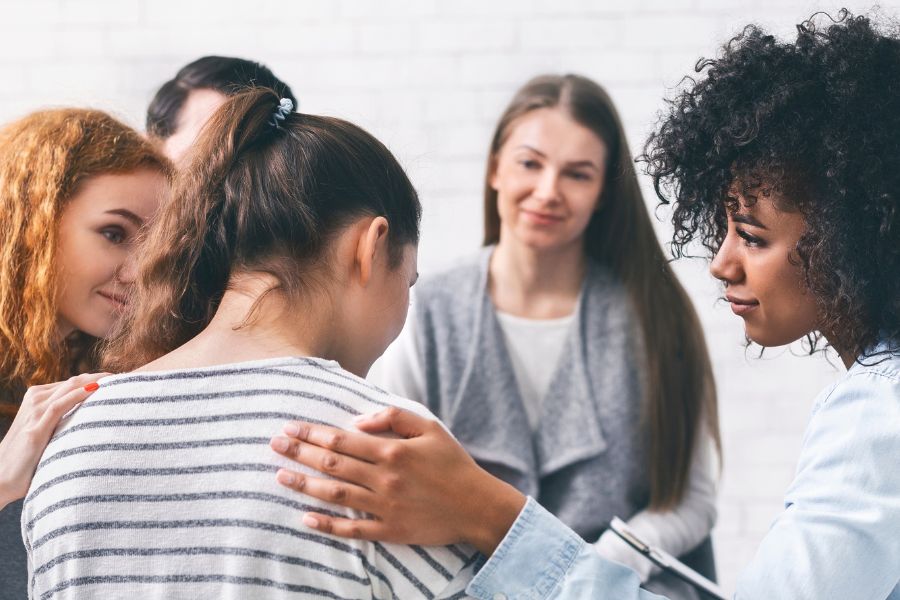Beyond death: Understanding grief in all its forms

Being veterinary professionals, we see our fair share of pet loss and the grief that people feel in response. Sadly, most of us personally know what that feels like too. But what if I told you that those feelings of grief can be triggered by other kinds of loss too? The loss you feel when your mentor retires or a close friend moves away is also grief. Secondary grief can also be experienced when a patient dies or a news story hits close to home. Similarly, grief can come from a rejection that closes the door to one of your life goals. Your body can’t tell the difference. Your parasympathetic nervous system is activated in all of these situations.
When loss redefines your identity
For me, it was the loss of a job I had poured my heart and soul into, only to find myself without a place during a restructuring. I felt like I was moving within a fog; I grappled to firmly grasp a new self-identity without this role that had defined me for so long; I cried at the drop of a hat; I tossed between wanting to be alone and feeling desperately lonely. My body didn’t know the difference between this loss and a loss from a death. I struggled to make any improvements – until I started treating it as grief.
The complex nature of grief
Grief comes in many forms and it can linger because there’s no “normal” timeline for healing. In fact, I’d argue that true recovery from grief isn’t really possible. It’s more about adapting and learning to move forward within a new normal. You don’t just check off the stages as you go – though wouldn’t that be convenient for us logical, Type A veterinary professionals? The reality is that some days you might feel like you’re making progress, only to have grief catch you off guard the next.

The layers of loss
Grief can be complicated. Often, episodes of loss don’t exist alone in our minds; instead, they tend to build upon each other. Not getting into vet school, for example, might remind you of how supportive your grandmother was before she passed, compounding those losses. Disenfranchised grief can arise when the loss you feel isn’t recognized or validated by others. You might hear things like “Why are you so sad? You can apply again next year,” or “At least you have your health.” People might view a similar loss as trivial, but if it matters to you, that’s what counts. We all handle setbacks, disappointments, and frustrations in our own way.
Adjusting to your new normal
How do we start to find ourselves again after a loss? The first step is to recognize the loss and give ourselves the grace and compassion to feel whatever comes up – sad, anger, or both. By naming the experience and understanding why it feels like a loss, we can begin to ground ourselves. This step is not for others to comment on or judge. If you feel grief, it’s okay to respectfully ask others to mind their own business while you work through it. Stay close to those who support you and validate your feelings.
Truly leaning into allowing yourself to feel the grief might be difficult or scary. We tend to shy away from things that make us feel bad. But all feelings have their place and those associated with grief tell us that we truly cared about a situation or loved someone / something greatly. My mentor, Susan Hamin, LMHC, hosts a pet loss support group. She often shares how honored she feels to be part of the group because, by opening up about their grief, people are really revealing just how much they loved their pet.

Finding meaning in loss
Similarly, when we grieve other types of losses, our bodies are revealing to us what we care deeply about. These feelings are important signposts that create meaning from our loss; another important step in adjusting to our new normal. When we are able to look at our loss from a place of growth and self-discovery, those feelings that we were shying away from become our foundation for why this hurt so much. Then, when we are ready, we can decide what to do with this new information about ourselves.
In my case of losing a job that I had loved, I realized which parts of my job brought me the most joy. I loved caring for the people doing the hard work of caring for animals in critical condition. I remembered that I often stayed late if a team member was having a tough time and needed to debrief about stressful cases or feelings of inadequacy when a case didn’t go well. As I thought more about how this loss could bring me closer to fulfillment in the future, I decided to go back to school to pursue a Masters in Social Work. Caring for people brought meaning to my loss and gave me purpose to move forward.
Creating personal rituals for closure
Moving forward also means getting closure on the experience of loss. Most religions and cultures have rituals around the loss of a human life that brings some comfort to those affected. But there aren’t normalized rituals around saying goodbye to a beloved pet, job, or relationship. We have the opportunity to create these experiences for ourselves in whatever way feels most comforting. For pet loss, I often find ways for people to express their love using their talents or activities that they enjoy. For example, an avid gardener might plant a memory garden; a crafter might make a scrapbook; a hiker might find a special place to go when they need to feel their pet’s presence.
Creating these kinds of experiences for other losses can be approached the same way. Like writing a goodbye letter to a retiring mentor thanking them for their support or gifting a friend who is moving with matching bracelets (yes, just like those best friend necklaces in middle school!).

Embracing your journey through grief
Grief touches us all, and while the experience can feel deeply isolating, it also offers a unique opportunity to reconnect with ourselves. If you are grieving, take the time that you need and be kind to yourself. Lean into healthy habits, get out in nature, and give yourself space for reflection. Rather than pushing your emotions aside, listen to what they reveal about your values and passions. This process of embracing grief can ultimately become a powerful journey of self-discovery, helping you gain clarity on what matters most and where your path might lead next.